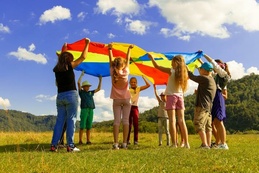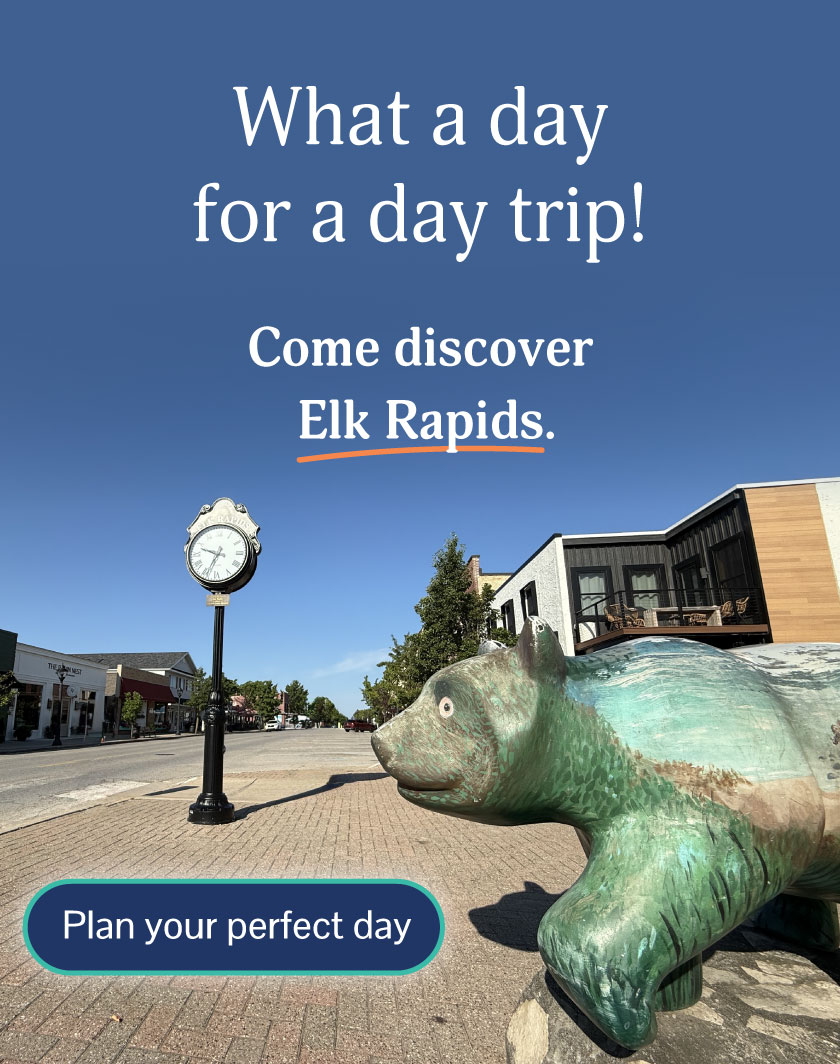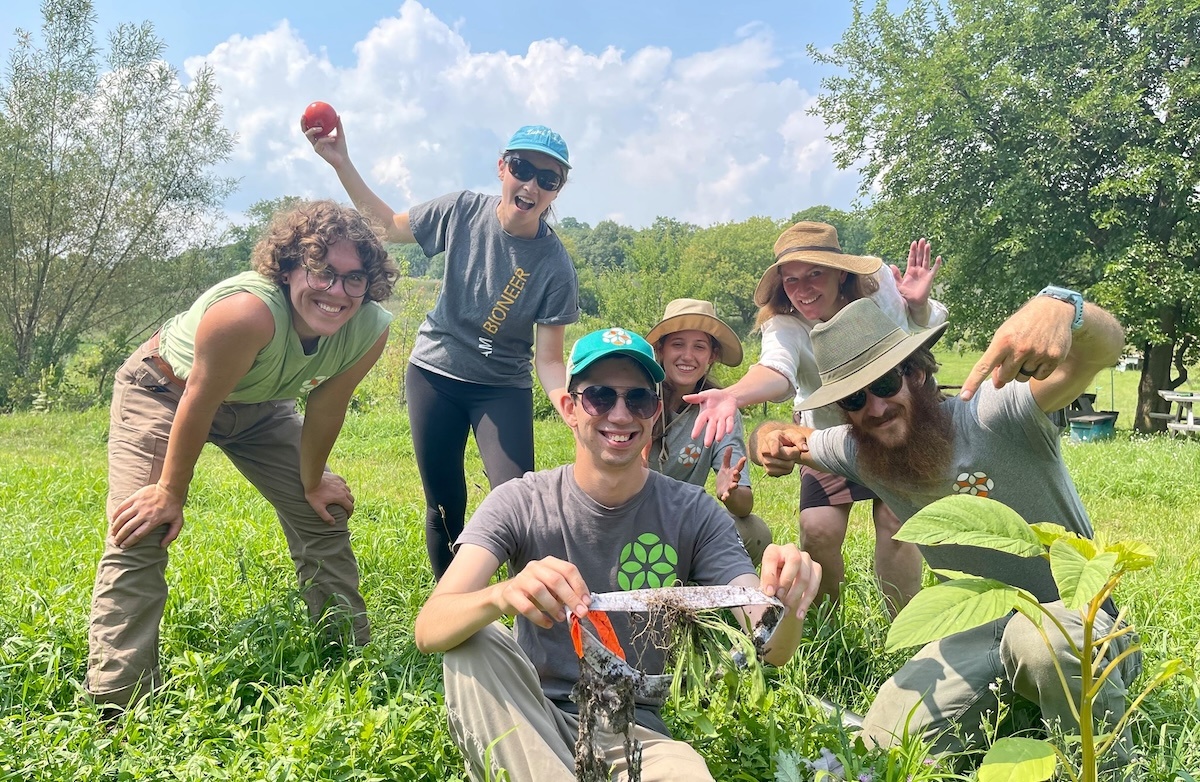
On the Ground with SEEDS Ecology & Education Centers
Behind the programs, partnerships, and funding that fuel this 25-year-old nonprofit
By Matt Dursum | Aug. 9, 2025
Near the Botanic Garden at Historic Barns Park, the crew at SEEDS Ecology & Education Centers shows local students the beauty of composting. Children and adults dig for earthworms in the compost petting zoo and learn about compost’s role in a healthy garden. Next door in the workshop, woodworkers turn fallen trees into pieces of furniture ready to sell.
These are just a few of the programs SEEDS has worked on over the last 25 years. “Our mission is to implement local solutions to global challenges,” says executive director Sarna Salzman.
The team of over 130 employees uses place-based ecological and community development work to impact 21 Michigan counties. “This intersectional space between ecology education and design means we get to do all kinds of different projects, from horticulture to climate action planning to youth education and workforce development,” says Salzman.
A group of friends from MSU founded SEEDS in 1999. “These three designers were at Michigan State drinking a lot of espresso coffee and just kind of envisioning the future they wanted. It was really just a naive dream of graduate students, too inexperienced to know better, which is a beautiful thing,” says Salzman, who joined the original board of directors while finishing her master’s degree.
The team used the organization’s first year for planning and envisioning its mission. From there, Salzman says the organization embraced a participatory design and a hands-on approach to healing communities and ecosystems.
“It’s evolved organically based on the availability of resources and partners, and this asset-based community development perspective. That means we’re landing in a community and saying, ‘What’s your problem and how do we fix it?’”
The nonprofit organization oversees several programs, including the EcoSchool, EcoCorps, EcoStrategies, and the Historic Barns Park at the Grand Traverse Commons (the latter in partnership with the Botanic Gardens and Traverse City Community Garden). Each program relies on community involvement and place-based activities with the purpose of lowering carbon emissions, regenerating habitats, and forming talent pipelines for green industries.
EcoSchool
To invest in the next generation, SEEDS partners with 13 schools in six rural school districts in its EcoSchool program. “A lot of those schools have gardens outside of the school, in partnership with the school building that we’re working with,” says Salzman.
With the help of SEEDS’ staff, students and teachers plant crops and incorporate plant lifecycles and compost into their curriculum. According to Salzman, the program is all about “learning to grow food, teaching kids to grow food, and using it as a platform to talk about food systems with the food service staff, as well as with the students.”
EcoCorps
Workers and educators in the EcoCorps train crew members in green-collar skills such as trail maintenance, land restoration, green infrastructure, and farming. Local businesses, nonprofits, and individuals can hire EcoCorps crews for services such as invasive species management, green cleaning services, and trail management. In 2024 alone, the program’s crew leaders and members built or improved 198 miles of local trails.
Another important side to the EcoCorps is its masonry and wood rescue studio. Here, inside the former blacksmith building in the Grand Traverse Commons, EcoCorps staff and volunteers train with wood sourced from rescued trees.
“The best tree is a standing tree, but sometimes trees come down, either at the end of their life cycle or, you know, when an ice storm goes through,” says Salzman. EcoCorps crews use the fallen timber to construct everything from rocking trays to charcuterie boards. “If you build heirloom furniture, then all that carbon stays sequestered in the heirloom. It’s also a great tool to show people in our EcoCorps Program some basic carpentry skills.”
Customers can buy Wood Rescue Initiative furniture and crafts directly on SEEDS’ website.
EcoStrategies
Businesses, nonprofits, and organizations concerned about their environmental impact can utilize SEEDS’ EcoStrategies Program. The EcoStrategies team uses U.S. Environmental Protection Agency (EPA) modeling programs to generate accurate data on greenhouse gas emissions, energy efficiency, and carbon drawdown. Local businesses can use this data to improve their sustainability.
Building Partnerships
To make all that magic happen, SEEDS has a lot of partners. “Mentorship is really important and partnership is the bread and butter of SEEDS,” says Salzman.
By partnering with Bungalow Builders, for example, EcoCorps crewmembers constructed a masonry heater in their woodworking studio and vision space at the Historic Barns Park. The large brick heater uses recycled wood to produce temperatures up to 1500°F to 2000°F that radiate through air spaces between the bricks. “The brick will actually be radiating heat for the whole day,” Salzman says. “It’s a beautiful way to heat a building.”
A short walk from the old blacksmith building is the SEEDS Farm and its Resident Farmer Program. Here, the team works with local organizations such as Carter’s Compost, The Father Fred Foundation & Giving Garden, and Salix Collective to create sustainable gardens for the community. In addition to garden beds and flower gardens are eight compost systems that are used for both practical and educational purposes.
Facing Funding Challenges
To fund its programs and hire its staff, SEEDS relies on grants, donations, sales, and services. In 2024, 15 percent of its funding came from private grants, while 16 percent came from services, sales, and donations collectively. The remaining 64 percent was received from government grants.
A different funding landscape is developing in 2025, and that is posing serious challenges to the organization.
“I think federal funding is something that everyone has to figure out how to pivot away from, and or restructure our expectations of what federal expectations are. But clearly the federal government is not interested in investing in a lot of things that it traditionally has,” says Salzman.
At the time of this writing, the federal government has belatedly funding from the Nita M. Lowey 21st Century Community Learning Centers 21CCLC grants. SEEDS uses the funding to serve over 500 students annually. Per a recent press release from SEEDS, "While programming looks to continue for the 2025-2026 school year, future years of approved grant funding are in question since the Fiscal Year 2025 reconciliation bill, that Congress passed this summer, effectively zeroes out 21CCLC funding for after school programs."
As Salzman points out, organizations like SEEDS must pivot quickly in these uncertain times. “It’s not like local philanthropists can fill the vacuum that’s approaching us. Everyone’s got to figure out how to do things differently. That’s not an easy question to answer, but breakdowns can lead to breakthroughs, so it’s an opportunity for innovation.”
Even with the uncertainty of federal funding cuts, SEEDS continues to provide services to hundreds of community members and organizations.
“Keeping fun at the center of this hard work is important,” says Salzman. “There’s so much healing that our planet and our communities need right now. So, how do you successfully tackle that? You just need to be kind of hands-on.”
Learn more about SEEDS and their work at ecoseeds.org.
Trending
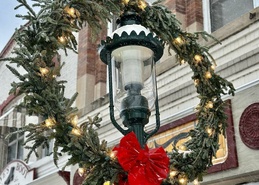
Three Holiday Shopping Sprees (and Trees!)
Head north of the 45th parallel this weekend for three chances to get all your holiday shopping done weeks before you’… Read More >>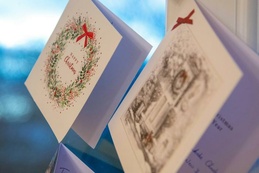
Writing a Heartfelt Card
They say that letter writing is a lost art, but Thrive 45° Young Professionals Group and the Petoskey Chamber are hoping… Read More >>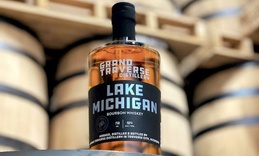
Distillery Ups and Downs of 2025: Craft Spirits Industry Is Shifting, but Not Shaken
In late October, scores of people bellied up to the bar to sample a variety of spirits made at Northern Latitudes’ new… Read More >>